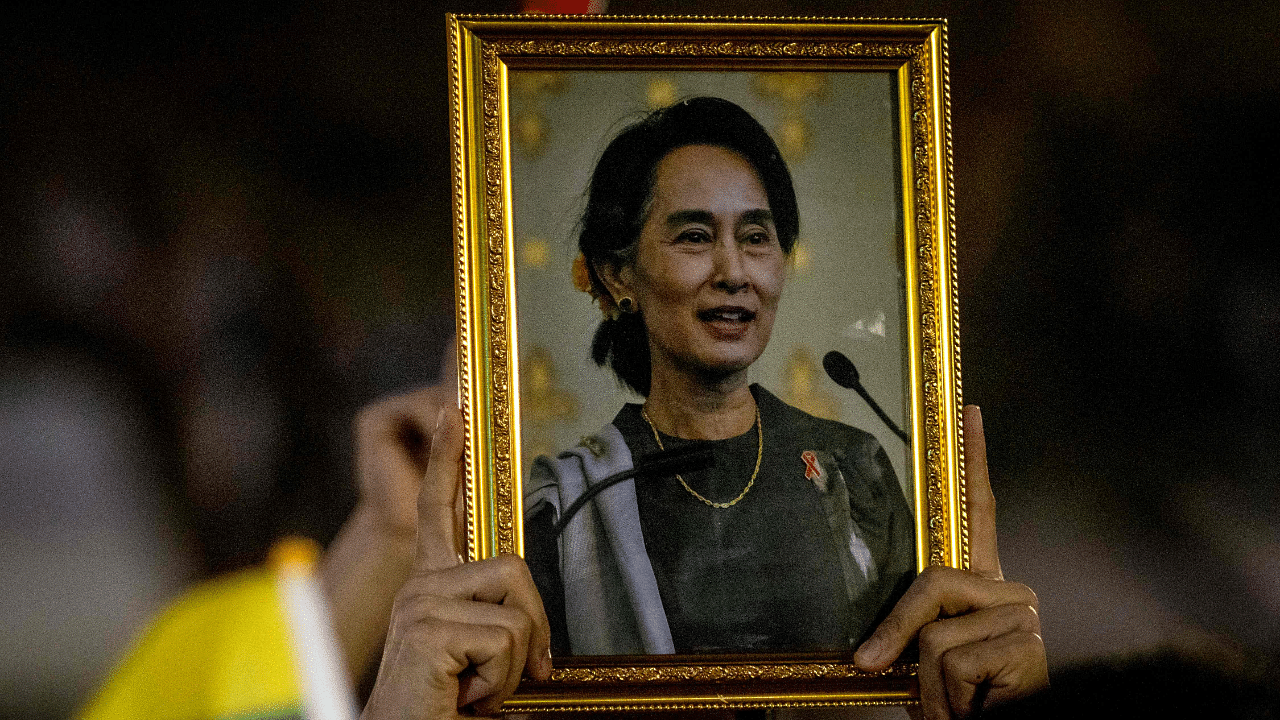
Seven protesters were shot dead in Myanmar Thursday as the junta reacted to international condemnation of its crackdown by claiming ousted civilian leader Aung San Suu Kyi had accepted hefty illegal payments.
Diplomatic pressure has been building since the generals seized power on February 1, triggering daily protests around the country that they have struggled to quell.
The United Nations on Wednesday condemned the junta's increasingly violent crackdown, which has seen more than 60 killed and 2,000 arrested, with even China — a traditional Myanmar ally — calling for "de-escalation" and dialogue.
Thursday saw more hardline action against demonstrators, with six killed in central Myanmar's Myaing township.
"Six men were shot dead while eight people were wounded — with one man in a critical condition," a rescue worker told AFP.
A witness told AFP five of them were shot in the head.
There was also a fatality in Yangon's North Dagon, where Chit Min Thu, 25, died after being shot in the head.
"I recently learnt that his wife is two months pregnant," his mother Hnin Malar Aung told AFP.
"No one will be in peace until this situation ends. They were so cruel with my son. I never expected my son would be shot in the head... I'm worried about all the unarmed youth, they will be in trouble."
The military, which has defended its takeover by citing voting irregularities in November elections won by Suu Kyi's party, held a rare news conference Thursday accusing Suu Kyi of corruption.
In the capital Naypyidaw, junta spokesman Zaw Min Tun said the detained chief minister of Yangon had admitted giving Suu Kyi $600,000 in cash, along with more than 11 kilograms ($680,000 worth) of gold.
"We have learned Daw Aung San Suu Kyi herself took this $600,000 and seven visses (11.2 kilograms) of gold. The anti-corruption commission is investigating," Zaw Min Tun said.
Nobel peace laureate Suu Kyi, detained since the February 1 putsch, is already facing several criminal charges including owning unlicensed walkie-talkies and violating coronavirus restrictions by staging a campaign event during last year's election.
On Thursday, state-run newspaper the Mirror carried an announcement that the Arakan Army (AA) — which fights for more autonomy for the ethnic Rakhine population in northern Rakhine state — was no longer considered a terrorist organisation.
The AA has been locked in battle with the military for nearly two years in a conflict that has left hundreds dead and forced some 200,000 civilians to flee their homes.
Herve Lemahieu, a Myanmar expert from Australia's Lowy Institute, said the move was likely because the military — known as the Tatmadaw — wanted to end the distraction of fighting the AA so it could focus on the protests.
"The Tatmadaw has many enemies, they don't want to operate on too many fronts at once and the most pressing front at this point in time is against the ethnic Burman majority in the major urban centres," he told AFP.
As the crackdown continues, the Sanchaung township in Myanmar's commercial hub Yangon had another sleepless night, as security forces raided apartments searching for lost police weapons.
"They used sound bombs on every street," said one resident.
Another part of Yangon, North Okkalapa, was also reeling after 300 arrests on Wednesday, according to the Assistance Association for Political Prisoners monitoring group.
An Amnesty International report on Thursday accused the military of using "battlefield weapons" on unarmed protesters and carrying out premeditated killings orchestrated by their commanding officers.
The rights group catalogued the security forces' use of firearms that are "completely inappropriate for use in policing protests", including light machine guns, sniper rifles and semi-automatic rifles.
With international condemnation so far seemingly ignored by the junta, the United States applied fresh pressure with sanctions against two adult children of coup leader General Min Aung Hlaing.
And the Asian Development Bank announced it had temporarily suspended funding for government projects in Myanmar "as the international community assesses the evolving situation".